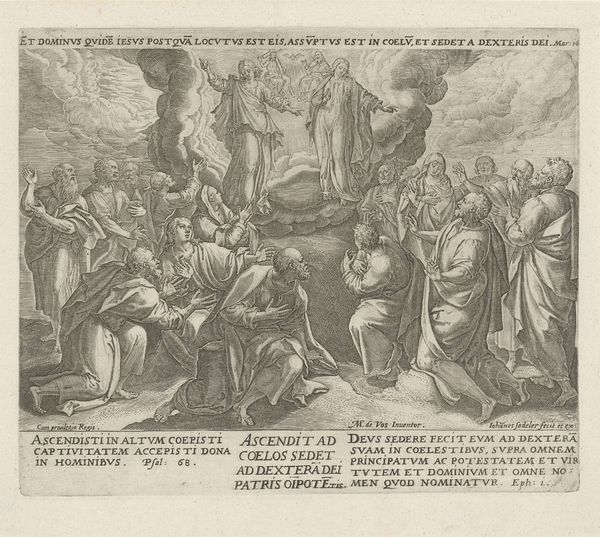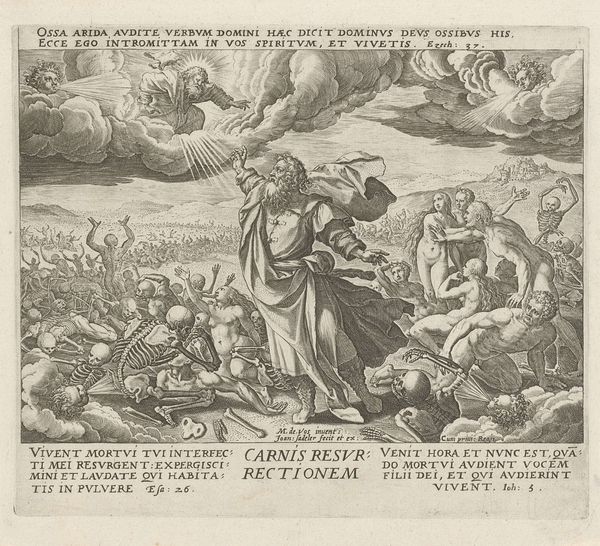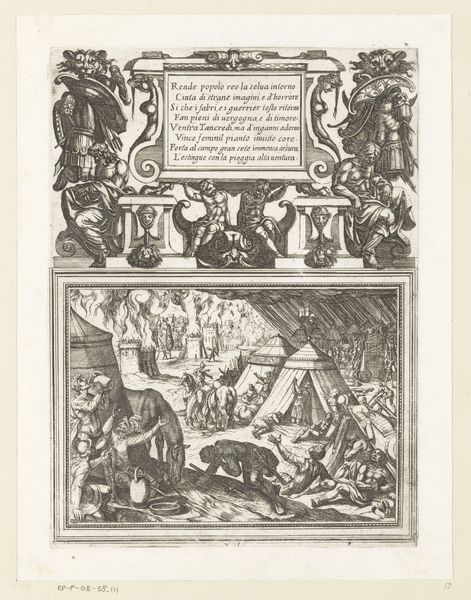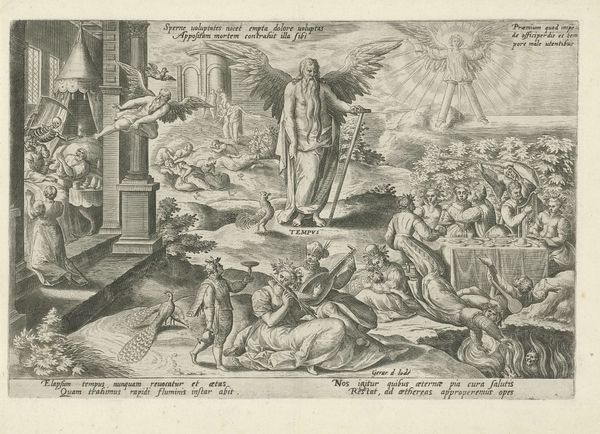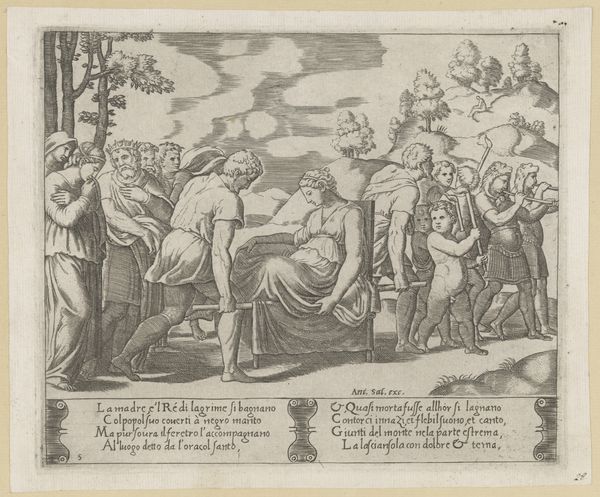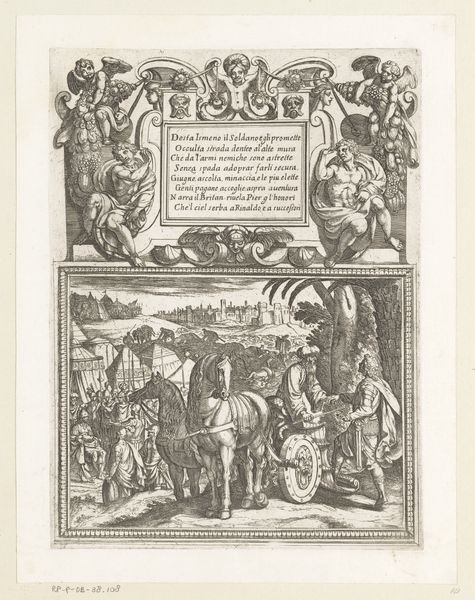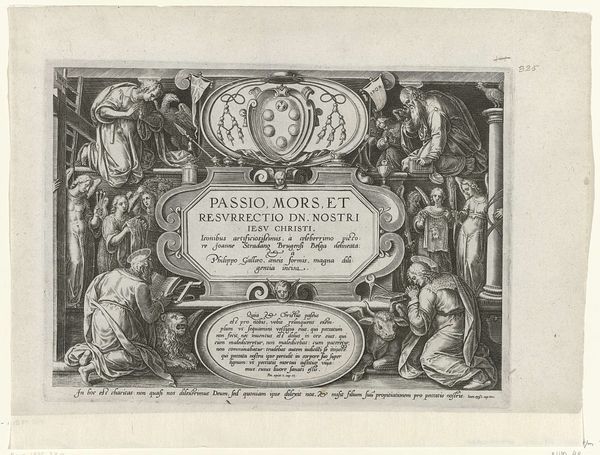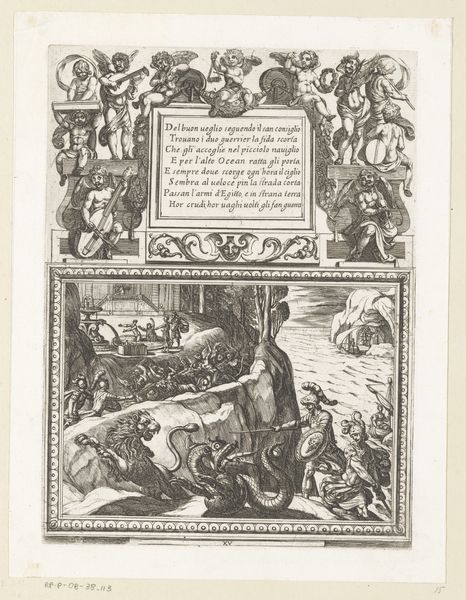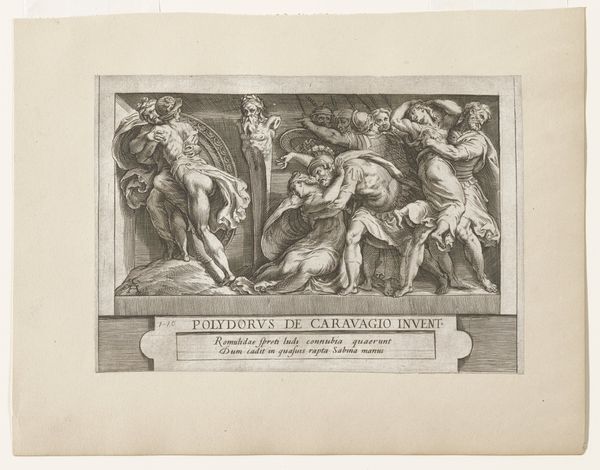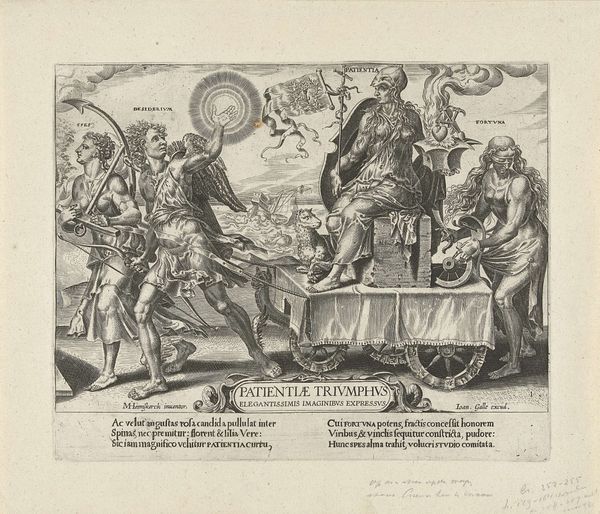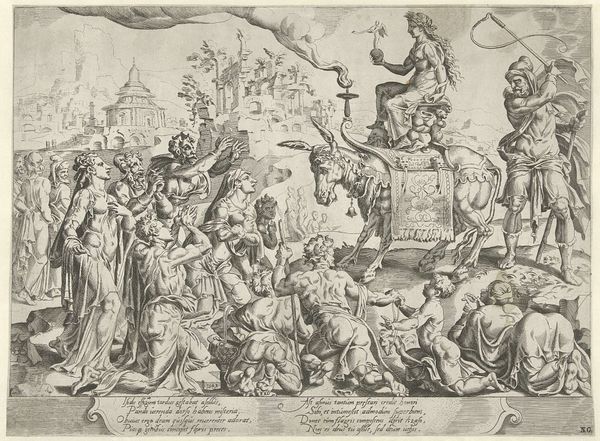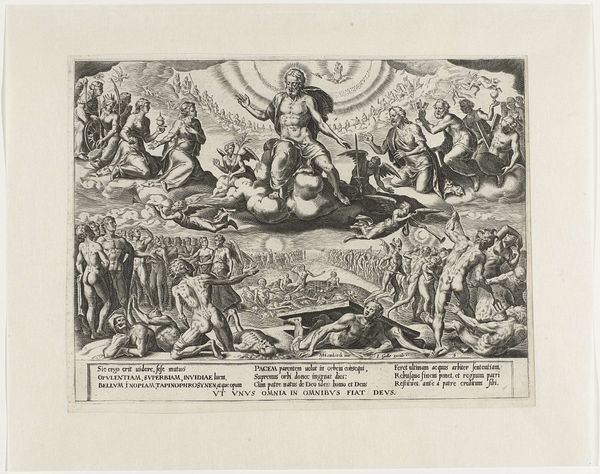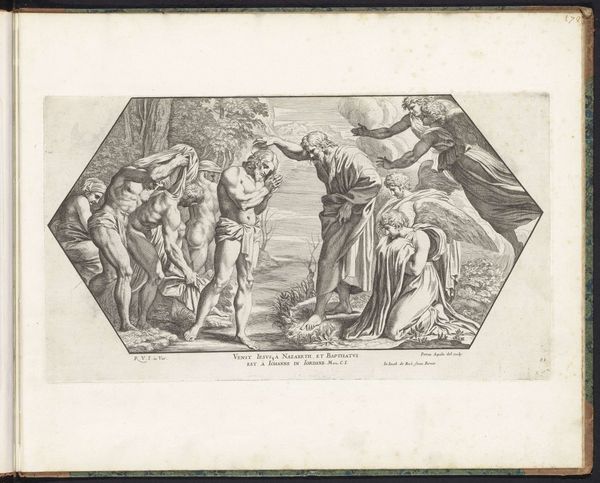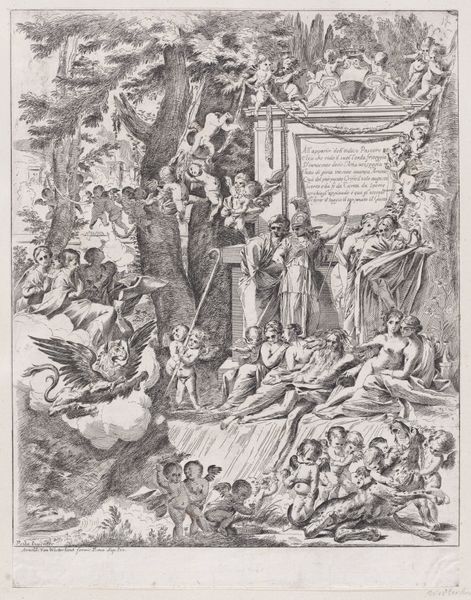
Spotprent op de katholieken na hun verliezen in 1627 en 1629 Possibly 1550 - 1630
0:00
0:00
anonymous
Rijksmuseum
print, engraving
#
allegory
#
narrative-art
#
baroque
# print
#
old engraving style
#
history-painting
#
engraving
Dimensions: height 259 mm, width 360 mm
Copyright: Rijks Museum: Open Domain
Curator: Let's look at this engraving, "Spotprent op de katholieken na hun verliezen in 1627 en 1629," possibly from between 1550 and 1630, created by an anonymous artist. It's currently held at the Rijksmuseum. The overwhelming detail in the figures is quite striking for an engraving, I find it so busy and captivating! What do you make of this work? Editor: Well, as a materialist, I immediately look at the medium: engraving. The lines are so precise. What kind of labor would have been involved in producing something like this, especially considering it's meant to be a political statement? And how would it be disseminated to an audience? Curator: Precisely! Consider the economic structures and printing practices of the time. Who controlled the means of production of these images? Who would have been consuming these images? It had to be distributed, consumed and that implies it had some utility in that moment. I would expect the cost of materials to be less important than the potential social cost, yes? Editor: Yes, and was the paper readily available, or expensive? How would this impact the scale and distribution? Curator: Excellent question! Given the potential political implications, we need to also think about censorship. Who was targeted here? And how did such works challenge the power structures through their material existence? Editor: It’s really fascinating how analyzing the production and materials allows us to unpack so many layers of meaning beyond just the overt imagery. Curator: Absolutely. Looking at the materiality and means of production unlocks an entirely different understanding of art's role in society.
Comments
No comments
Be the first to comment and join the conversation on the ultimate creative platform.
